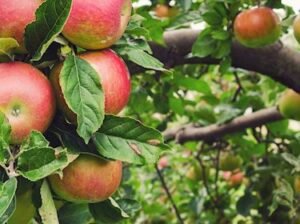By Rogers Aghan, March 1, 2023, The yearly budget by Enoch Godngwana, Minister for Finance in Parliament on the 22nd of February gave relief to South African food producers struggling under the burden of rising input costs.
Tax increases affecting the agriculture sector were controlled and moderated with rebates being initiated.
About R254 billion in debt relief was given to Eskom over the next three years.
The South African-based primary electricity supplier generates nearly 90% of the electricity used in the country and approximately 30% used in the African continent.
South African’s Agri chief economist Kulani Siweya welcomed the relief but warned that Eskom will be expected to demonstrate how it would use the relief to place itself for future profitability and sustainability.
The chief executive officer of Agbiz, Theo Boshoff praised the government for implementing a rebate on the road accident fund levy for diesel used in the manufacturing process, such as generators, which should start on April 1 2023and last two years to enhance and support food producers amid rising input costs.
Businesses and Home owners looking to invest in rooftop solar panels and other renewable sources of energy would also benefit from tax breaks.
The Minister for Finance, Godongwana, reiterated that individuals who installed rooftop solar panels from March 1 would be allowed to claim rebate of 25% of the cost of the panels, up to a maximum of R15 000. This, however, only applied to solar panel installation, not batteries and inverters.
Treasury was also elevating existing incentives to boost investments by businesses in renewable energy sources. Businesses could claim up to R337 000 in rebates in the first year of investment.
Theo Boshoff, Agbiz CEO, stated that it was unclear which category of farming businesses that operated as sole entities without separate proprietors would fall.
Farmers will have to consult with their tax persons once the South African Revenue Services (SARS) publishes the details of the scheme.
Siweya acknowledged that the planned spending of more than R489 billion on crucial infrastructure like logistics and transport, as well as sanitation and water reflected Treasury’s understanding of the essential contribution of the vital projects at hand to the national economy and food security of the country.
Sin taxes received slight increases of 4.9 % in the excise duties on tobacco and alcohol and no increase on the sugar tax.
Godongwana reiterated that the current challenges faced by sugar farmers led to the decision to postpone the increase of the health promotion levy on beverages to R0.23/gr sugar until April 1, 2023.
Government had, albeit remained reluctant to budge on the industry’s advocacy for the tax to be scrapped entirely.
The chairperson of the South African Cane Growers’ Association, Andrew Russel said that implementing the increase now would have decimated the industry, costing the country much-needed jobs.
“This intervention was vital considering that the industry has continued to face more than R700 million in lost revenue because of load-shedding and the impact of the recent floods.”
Russel also looked forward to the two-year reprieve hoping that it could foster further engagement concerning the effectiveness of the levy and the possibility of crafting alternative, less destructive, and holistic health interventions.
“At the same time, growers will use this opportunity to revive the industry, and to position it for long-term profitability and sustainability.”
Government’s fiscal position has slightly improved, with the consolidated budget deficit expected to decline from 4,6% of GDP in 2021/22 to 4,2% 2022/23 and reach 3,2% of GDP in 2025/26. Domestic challenges, particularly the energy crisis, remained significant constraints to growth, with the South African economy expected to grow by less than 2% through 2025.
Siweya said that this was a critical moment for the agriculture sector, which was being battered by load-shedding.
“Only time will tell if government will meet the moment with the urgency it requires in the implementation of the interventions announced.”







